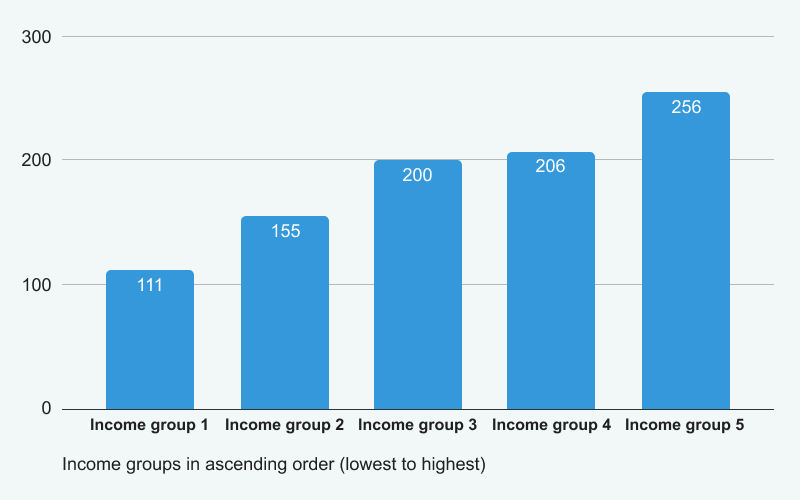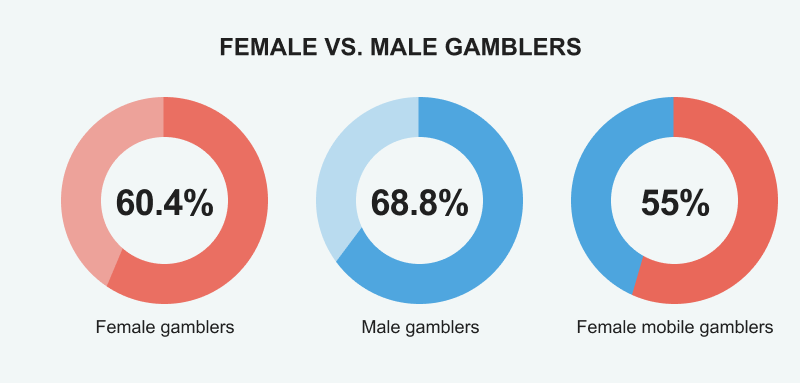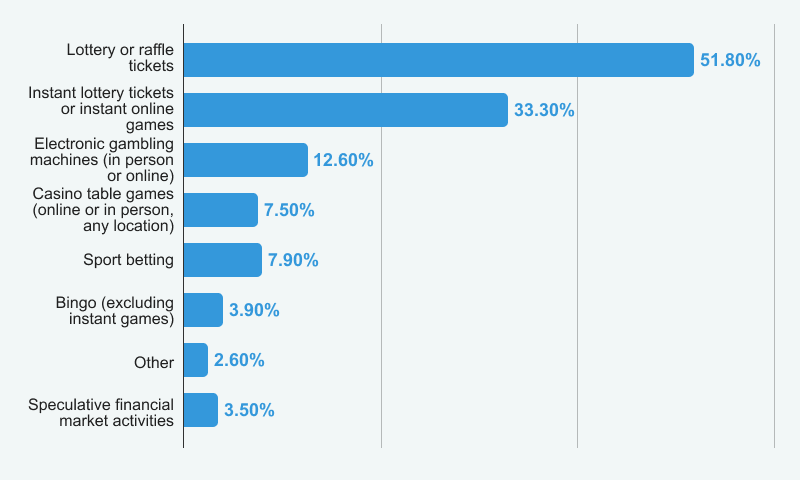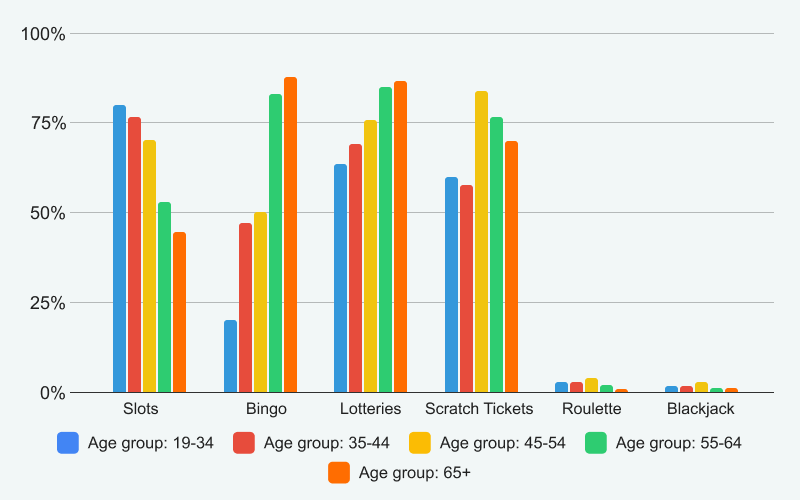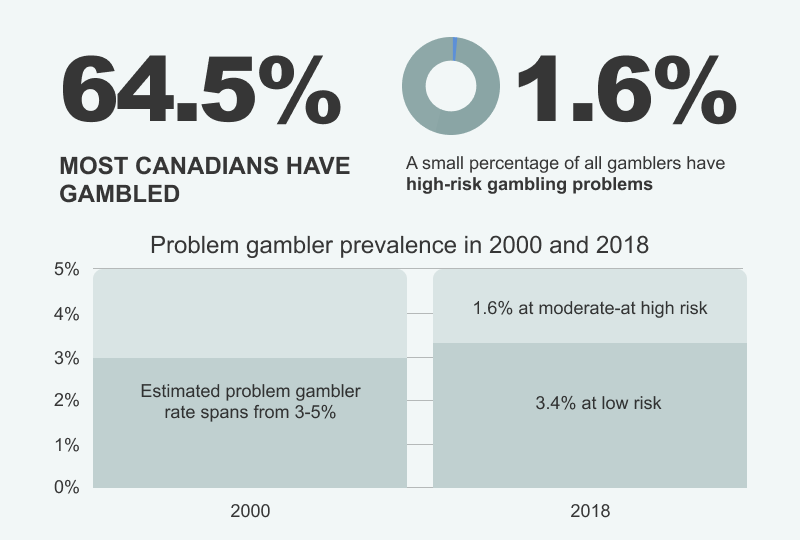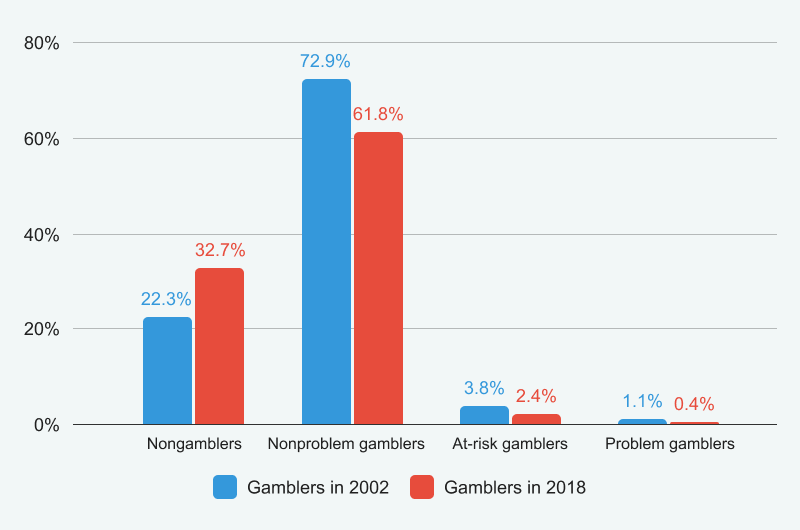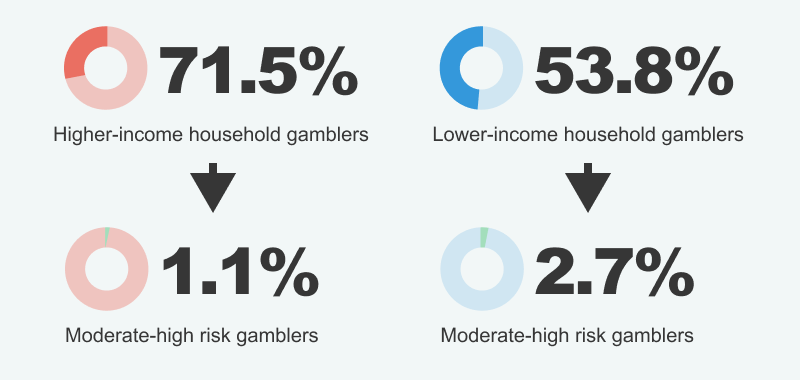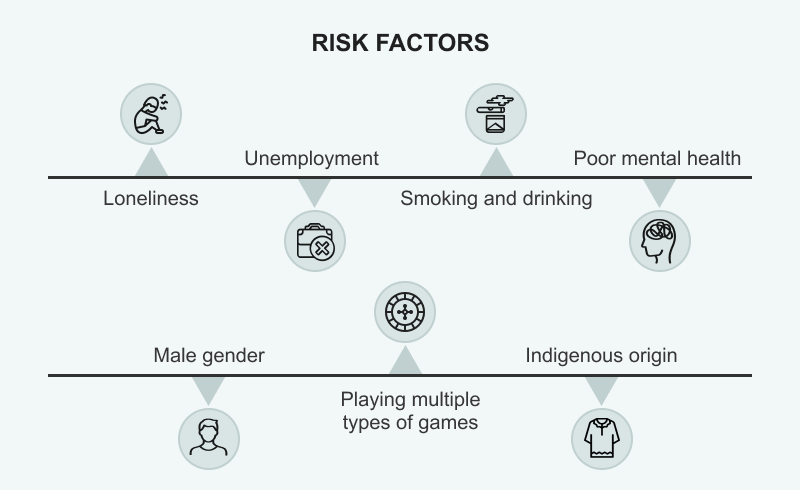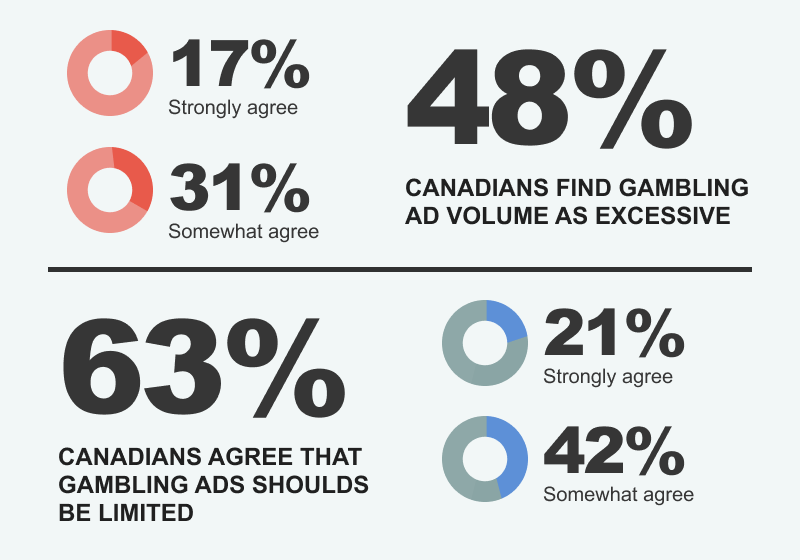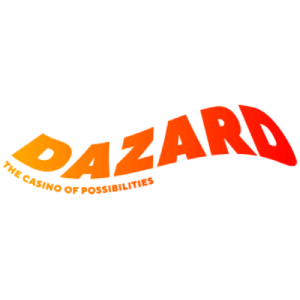We conducted an assessment of the landscape of gambling in Canada to provide an objective perspective on its current condition . The purpose of this study was to identify any potential links between gambling issues and the growing access to gambling options throughout Canada.
Market size
While online casinos in Canada While offline games still hold greater popularity, the sector is marked by consistent annual growth. In 2023, Canada's gambling sector reported revenues of C$15.44 billion, with online operations contributing C$4.94 billion to this total. Since the onset of COVID-19 in 2019, there has been a downturn in overall gambling revenue, particularly in offline segments.
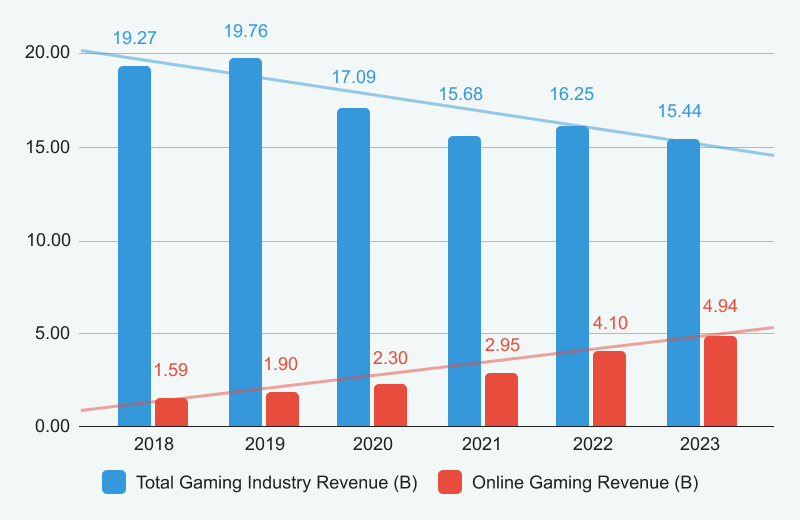
Canada's gambling revenue from 2018 to 2023 (data sourced from Statista)
While initial declines were linked to the closure of physical gambling venues, more recent data suggests an increasing shift among Canadians towards online gaming.
Although revenue from online gambling has been on a steady incline, its share of the overall market has encroached upon that of offline operations in recent years.
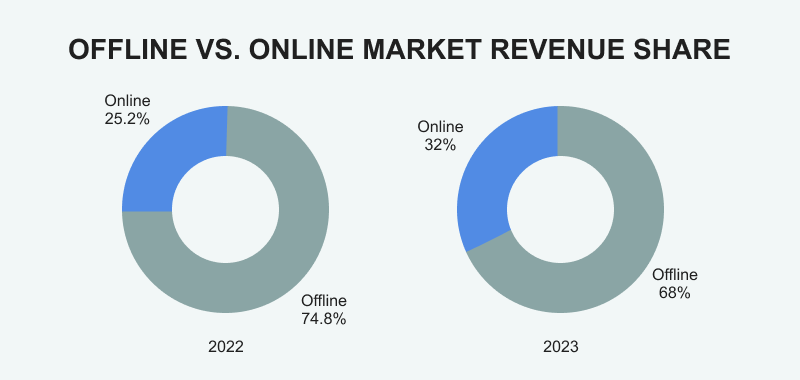
A comparison of revenues from online and offline gambling (data sourced from Statista)
The shift in market share between online and traditional gambling is attributable to several factors:
- Closure of some businesses during the COVID-19 pandemic has led to a diminished share of the offline gambling market.
- A growing number of players are opting for online gaming instead.
- The overall income from gambling is decreasing as Canadians are gravitating towards alternative leisure activities.
Data reveals that Canada’s online gambling market ranks among the top five globally in terms of revenue for 2024, marking Canada as the fifth-largest in the sector. Meanwhile, the overall gambling market size positioned Canada as the fourth-largest worldwide in 2022.
Growth of Online Gambling in Canada
The expansion of the online gambling industry is evident, as consistent annual revenue growth reflects an upward trajectory. In comparison to 2017, revenue has tripled by 2023. Projections for 2024 suggest that revenue since 2017 may even quadruple, potentially reaching C$5.74 billion.
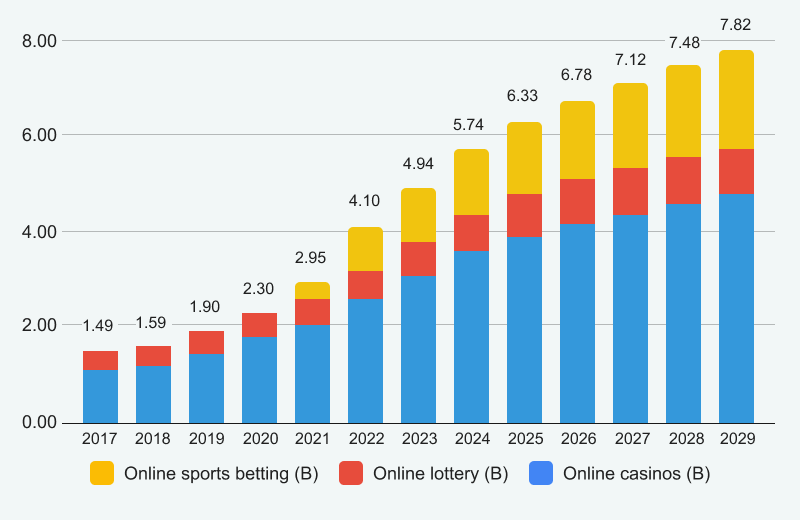
Yearly gambling revenue (data sourced from Statista)
By 2029, the market volume is expected to increase to C$7.82 billion, suggesting a projected annual growth rate of 6.39% .
Revenue from online lotteries is also on the rise, expected to grow by US$0.26 billion from 2023 to 2029. However, participation in these games is predominantly offline, making their growth less significant in comparison to sports betting or online casino games.
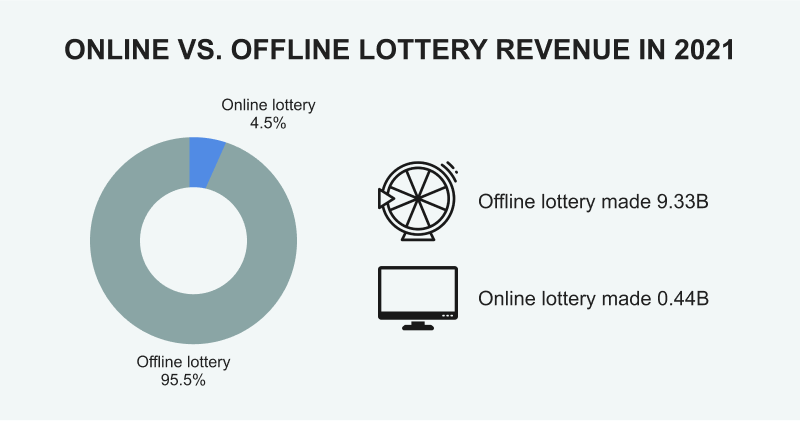
A comparison of the revenue from online vs. offline lotteries (data sourced from Statista)
For context, traditional ticket sales in Canada reached C$9.33 billion in 2021, whereas the revenue from online lottery tickets accounted for US$0.44 billion. Consequently, the offline market still dominates online sales , contributing to 95.5% of the total revenue in this sector.
The Number of Canadians Participating in Online Gambling
According to the latest available data from 2023, there were 30.3 million users engaged in various forms of online gambling. The legalization of sports betting has contributed to the fact that most online gamblers now identify as sports bettors.
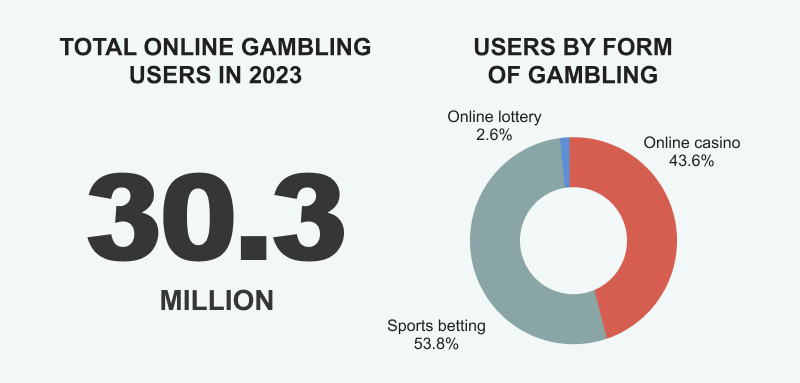
Online gambling user statistics for 2023 (data sourced from Statista)
The legalization of single-event sports betting is a relatively new occurrence in the gambling sector, but its impact has already been significant. It marks a notable shift in gambling behavior over recent times. Let's take a closer examination of these shifts.
Online Gambling User Changes
The total number of online gamblers is on a consistent rise. The introduction of legal single-event sports betting in Canada in 2021 has led to a dramatic influx of new users. As of 2023, sports betting participants have outnumbered those in online casinos, a trend expected to continue in the years ahead.
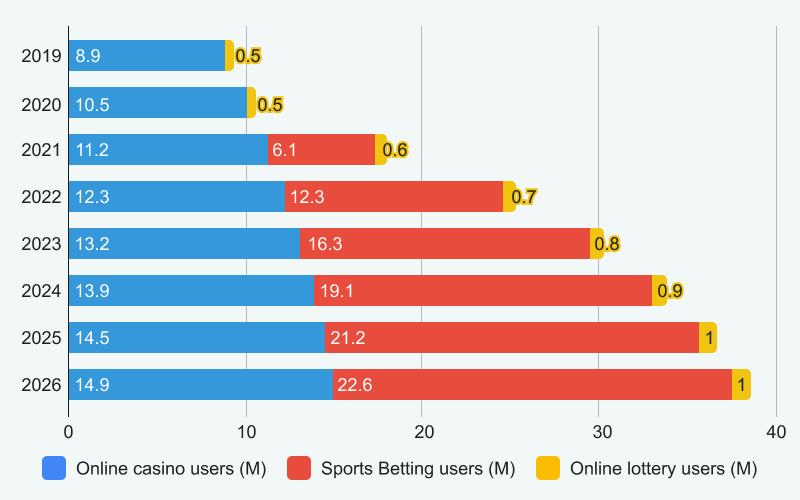
Trends in user involvement across various gambling activities (data sourced from Statista)
In 2023, while there were 3.1 million more individuals participating in sports betting as opposed to casino games, revenue generated by online casinos still exceeded that of sports betting by 2.5 times .
Forecasted insights from Statista Market Insights suggest that the number of sports bettors will continue to grow rapidly by several million users each year, although this pace may gradually decelerate by 2025. Participation in online lotteries has also seen a modest annual increase, though it remains significantly lower than that of sports betting or online casino games.












